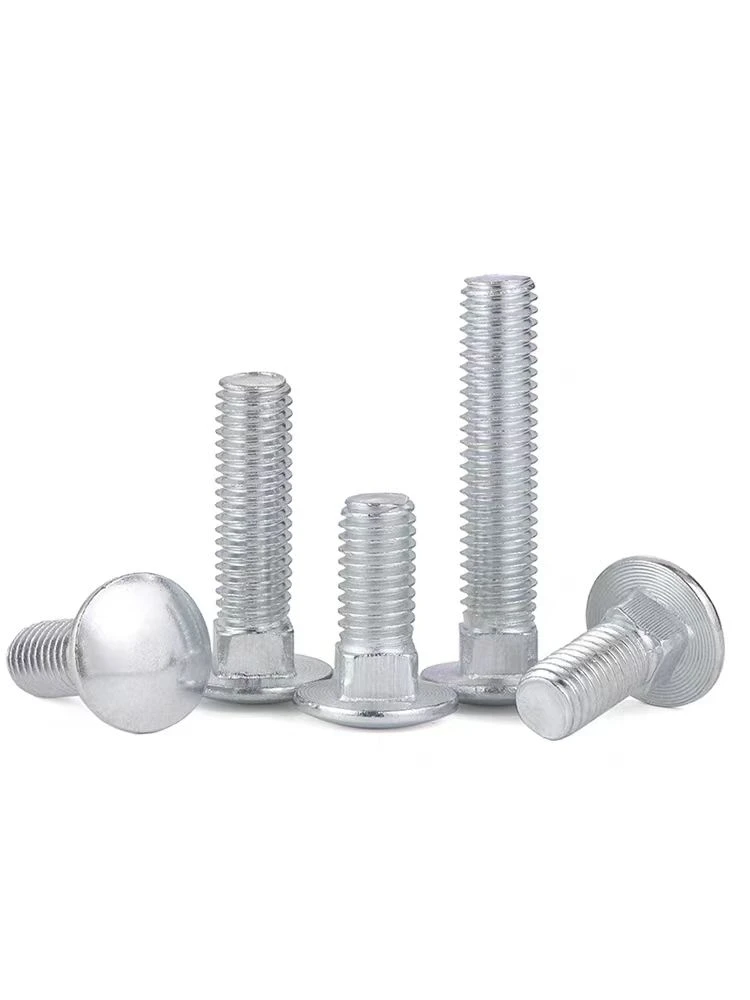

Understanding the Benefits and Applications of Self-Tapping Screws in Various Industries
Des . 17, 2024 08:42 Back to list
Understanding the Benefits and Applications of Self-Tapping Screws in Various Industries
Understanding Self-Tapping Screws A Comprehensive Guide
Self-tapping screws play a crucial role in various industrial, construction, and DIY applications. These versatile fasteners are designed to create their own holes as they are driven into materials, which distinguishes them from standard screws that require pre-drilled holes. Understanding the mechanics, advantages, and applications of self-tapping screws can greatly enhance their effective use in projects ranging from simple repairs to complex constructions.
What are Self-Tapping Screws?
Self-tapping screws are specially designed with a sharp point and threads that allow them to cut through materials like metal, plastic, and wood. The unique feature of self-tapping screws is their ability to tap their own threads into the material they are being driven into, eliminating the need for additional drilling. The two main types of self-tapping screws are
1. Thread-Cutting Screws These screws are equipped with a cutting edge that removes material as the screw is inserted, creating its own thread. 2. Self-Drilling Screws These possess a drill point that allows them to drill a pilot hole and tap their own threads at the same time. They are particularly useful for metal applications.
Advantages of Self-Tapping Screws
Self-tapping screws offer several advantages that make them highly favored in various applications
- Time-Efficient Since they eliminate the need for pre-drilling, self-tapping screws save significant time during assembly or installation. - Ease of Use They can be easily used with a power drill or screwdriver, making them accessible for both professionals and DIY enthusiasts. - Versatility With the ability to penetrate multiple materials, these screws can be used in diverse environments, including wood, plastic, and metal. - Strong Holding Power When installed correctly, self-tapping screws provide strong and durable connections that hold up well under tension or stress.
Choosing the Right Self-Tapping Screw
Selecting the appropriate self-tapping screw for a specific project is essential for achieving optimal results. Some factors to consider include
self tapping screw 1

- Material Ensure that the screw material is compatible with the material you are fastening. For example, use stainless steel screws for outdoor applications to prevent rust and corrosion. - Size and Length The size of the screw should correspond to the thickness of the material being fastened. A screw that is too short will not provide a secure hold, while one that is too long may penetrate too deeply or damage underlying structures. - Drive Type Different drive types (e.g., Phillips, slotted, Torx) offer varying levels of grip and torque. Choose one that suits the tools you’ll be using and the application requirements.
Application of Self-Tapping Screws
Self-tapping screws are employed in a multitude of applications. Some common uses include
- Automotive Industry They are extensively used to attach panels, brackets, and other components due to their reliability and strength. - Construction and Carpentry These screws are used in framing, drywall installation, and securing sheathing materials. - Electronics In the electronics industry, self-tapping screws help secure components within enclosures and cases where precision is vital. - Home Projects DIY enthusiasts often utilize self-tapping screws in furniture assembly, repairs, and various craft projects for their ease of use.
Best Practices for Installation
While self-tapping screws are designed for ease of use, following best practices ensures effective and lasting results
- Pre-Drilling In some instances, especially with harder materials, pre-drilling a pilot hole may be beneficial to prevent splitting or breakage. - Correct Torque Avoid overtightening as it can strip the threads. Make sure to apply the appropriate amount of torque. - Use the Right Tools Employing the correct screwdriver or power tool compatible with the screw type enhances ease of installation and reduces the risk of damaging the screw head.
Conclusion
Self-tapping screws are a remarkable innovation in fastener technology, offering a blend of efficiency, versatility, and strength. By understanding their functionality, advantages, and proper application, users can leverage self-tapping screws to achieve durable and reliable results in their projects. Whether you are a seasoned professional or a DIY beginner, self-tapping screws are essential tools that can enhance your craftsmanship and project outcomes.
Latest news
-
Premium Fasteners Manufacturer | AI-Driven Solutions
NewsAug.01,2025
-
Hot Dip Galvanized Bolts - Hebei Longze | High Strength, Corrosion Resistance
NewsAug.01,2025
-
High-Strength Hot Dip Galvanized Bolts - LongZe | Corrosion Resistance, Custom Sizes
NewsAug.01,2025
-
Best Self Tapping Screws for Drywall - Fast & Secure Installation
NewsJul.31,2025
-
High-Strength Hot Dip Galvanized Bolts-Hebei Longze|Corrosion Resistance&Customization
NewsJul.31,2025
-
Hot Dip Galvanized Bolts-Hebei Longze Metal Products|Corrosion Resistance&High Strength
NewsJul.31,2025

